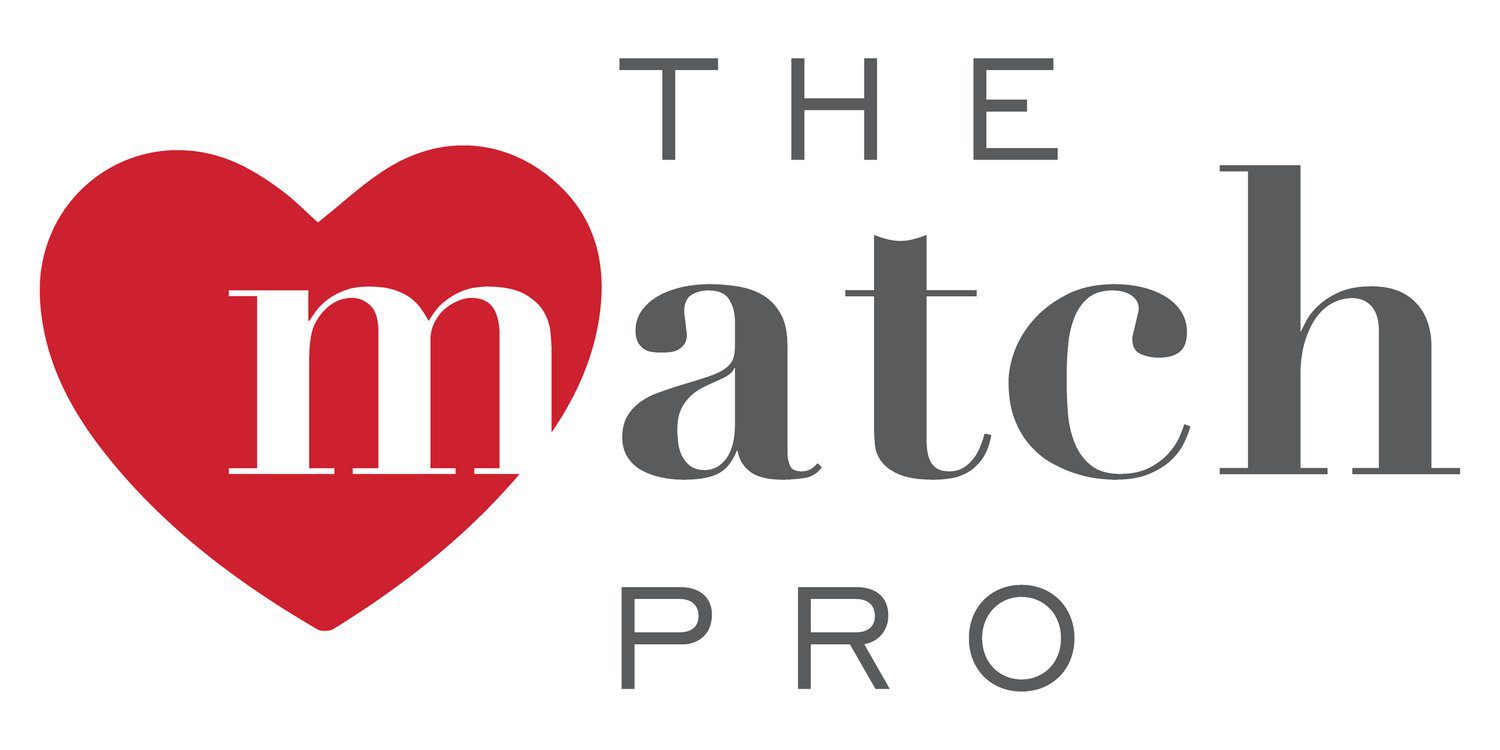Embarking on the journey to find ‘The One’ can be both exhilarating and daunting. This path involves a blend of self-discovery, patience, and effective strategies. Whether you’re new to the world of matchmaking or refining your approach, understanding the key steps is essential. Discover Ten Steps To Finding ‘The One’ and build a meaningful relationship with these essential guidelines. These steps will provide valuable insights and practical advice to help you navigate the complexities of finding a lasting and fulfilling relationship. By embracing these strategies, you can enhance your chances of connecting with someone truly compatible.
Understanding Yourself
Self-Reflection
The first step in finding ‘The One’ is understanding yourself. Self-reflection allows you to evaluate your strengths, weaknesses, desires, and fears. This introspective process involves asking yourself critical questions about what you want in a partner and why.
- Evaluate your past relationships.
- Identify patterns and preferences.
- Understand your emotional triggers.
- Define your strengths and weaknesses.
Knowing Your Values and Goals
Clarifying your values and long-term goals is crucial. Values such as honesty, respect, and loyalty form the foundation of a lasting relationship. By identifying your core values, you can seek a partner whose values align with yours.
- Identify core values.
- Align values with potential partners.
- Understand your life goals.
- Ensure compatibility in career and family plans.
Improving Self-Worth
Confidence and self-worth play a significant role in attracting a compatible partner. Work on improving your self-esteem through positive affirmations, self-care routines, and setting personal boundaries.
- Practice positive affirmations.
- Engage in self-care routines.
- Set and maintain personal boundaries.
- Focus on personal growth.
Developing a Positive Mindset
A positive mindset is essential when looking for ‘The One.’ Approach the dating process with optimism and an open heart. Positive thinking not only makes you more attractive to potential partners but also helps you cope with setbacks and rejections more effectively.
- Maintain an optimistic outlook.
- Cope effectively with setbacks.
- Attract potential partners with positivity.
- Foster resilience and determination.
Learning from Past Relationships
Every relationship, successful or not, offers valuable lessons. Reflect on your past relationships to understand what worked and what didn’t. This understanding helps you avoid repeating mistakes and enables you to recognize patterns that may hinder your search for a compatible partner.
- Identify lessons from past relationships.
- Avoid repeating past mistakes.
- Recognize patterns that hinder compatibility.
- Apply insights to future relationships.
Setting Realistic Expectations
Defining What You Want
While it’s essential to know what you want in a partner, it’s equally important to be realistic. Create a list of qualities that are crucial to you and separate them from preferences that are negotiable.
- List essential qualities.
- Distinguish between must-haves and preferences.
- Focus on core needs.
- Avoid overly restrictive criteria.
Balancing Idealism and Realism
It’s easy to fall into the trap of idealizing a perfect partner. However, no one is perfect. Balancing idealism with realism means understanding that every individual has flaws.
- Understand that everyone has flaws.
- Seek alignment in values and goals.
- Avoid unrealistic expectations.
- Embrace imperfections.
Recognizing Deal-Breaking Red Flags
Knowing your deal-breakers is crucial in the dating process. These are non-negotiable aspects that you cannot compromise on, such as honesty, loyalty, or certain lifestyle choices.
- Identify non-negotiable aspects.
- Filter out incompatible matches.
- Save time and emotional energy.
- Stay true to core values.
Being Open to Imperfection
Embracing imperfection in yourself and others is a key aspect of finding ‘The One.’ Understand that both you and your potential partner will have flaws. Being open to these imperfections allows you to build a relationship based on acceptance and mutual respect.
- Accept personal and partner’s flaws.
- Build a relationship on mutual respect.
- Foster an environment of acceptance.
- Focus on positive attributes.
Expanding Your Social Circle
Joining Interest-Based Groups
One effective way to meet potential partners is by joining groups or clubs that align with your interests. Whether it’s a book club, a sports team, or a volunteer organization, engaging in activities you love increases the chances of meeting like-minded individuals.
- Join book clubs, sports teams, or volunteer organizations.
- Engage in activities you love.
- Meet like-minded individuals.
- Increase chances of meaningful connections.
Leveraging Social Media
Social media platforms offer numerous opportunities to connect with potential partners. Participate in online communities and groups that match your interests. Engage in meaningful conversations and be open to virtual connections that can transition into real-life meetings.
- Engage in meaningful conversations.
- Be open to virtual connections.
- Transition online connections to real-life meetings.
- Use platforms to expand your network.
Attending Social Events
Social events such as parties, weddings, and community gatherings are excellent opportunities to meet potential partners. Attend these events with an open mind and a positive attitude.
- Attend with an open mind.
- Maintain a positive attitude.
- Be sociable and approachable.
- Increase chances of meaningful connections.
Engaging in New Hobbies
Exploring new hobbies and interests not only enriches your life but also expands your social circle. Whether it’s taking a cooking class, learning a new language, or joining a hiking group, engaging in new activities introduces you to a diverse group of people, increasing your chances of finding someone special.
- Take cooking classes, learn new languages, or join hiking groups.
- Introduce yourself to diverse groups.
- Increase opportunities to meet new people.
- Foster shared interests and connections.
Effective Communication
Honing Active Listening Skills
Active listening is a fundamental skill in building any relationship. Practice paying full attention to your partner during conversations, showing empathy, and responding thoughtfully. This skill fosters deeper connections and mutual understanding.
- Pay full attention during conversations.
- Show empathy and understanding.
- Respond thoughtfully.
- Foster deeper connections.
Expressing Yourself Clearly
Clear and honest communication is essential in any relationship. Learn to express your thoughts, feelings, and needs openly and respectfully. Being upfront about your intentions and expectations helps in building a strong foundation for a lasting relationship.
- Be upfront about intentions and expectations.
- Express thoughts and feelings clearly.
- Build a strong foundation.
- Enhance mutual understanding.
Avoiding Rushed Decisions
Rushing into a relationship can lead to overlooking potential red flags. Take your time to get to know the person and allow the relationship to develop naturally. Patience ensures that you make informed decisions based on a deeper understanding of your partner.
-
- Avoid rushing into relationships.
- Identify potential red flags.
- Make informed decisions.
- Allow natural development.
Navigating Difficult Conversations
Every relationship will encounter challenging conversations. The key is to approach these discussions with patience and a willingness to understand the other person’s perspective. Developing conflict resolution skills ensures that you can navigate disagreements without damaging the relationship.
- Approach discussions with patience.
- Be willing to understand your partner’s perspective.
- Develop conflict resolution skills.
- Navigate disagreements constructively.
Reading Non-Verbal Cues
Non-verbal communication, such as body language and facial expressions, plays a significant role in interactions. Being attuned to these cues helps you understand your partner’s feelings and reactions better, enhancing overall communication.
- Be attuned to body language.
- Understand facial expressions.
- Enhance overall communication.
- Interpret non-verbal signals effectively.
Practicing Empathy
Empathy is the ability to understand and share the feelings of another person. Practicing empathy in your interactions fosters emotional intimacy and trust. It allows you to connect on a deeper level and builds a supportive and caring relationship.
- Understand and share feelings.
- Foster emotional intimacy.
- Build trust and connection.
- Enhance relational dynamics.
Seeking Professional Help
Utilizing Matchmaking Services
Professional matchmaking services can significantly enhance your search for ‘The One.’ These services use various tools and techniques to match you with compatible partners based on your preferences and values. Leveraging their expertise can streamline your journey to finding a meaningful relationship.
- Use professional matchmaking services.
- Benefit from expert advice.
- Increase chances of finding a compatible partner.
- Streamline your search process.
Consulting Relationship Coaches
Relationship coaches provide personalized guidance and support. They help you identify your relationship goals, improve your communication skills, and navigate the dating world more effectively. Their expertise can be invaluable in overcoming obstacles and finding ‘The One.’
- Seek personalized guidance.
- Improve communication skills.
- Navigate the dating world.
- Overcome obstacles with expert help.
Participating in Workshops
Workshops focused on relationship-building skills offer valuable insights and practical advice. These workshops cover topics such as communication, conflict resolution, and emotional intelligence, equipping you with the tools needed to build a successful relationship.
- Participate in relationship workshops.
- Gain valuable insights.
- Improve relational skills.
- Apply practical advice.
Engaging in Counseling if Needed
Counseling can help address any unresolved issues or emotional barriers that may hinder your search for a partner. Working with a counselor provides a safe space to explore your feelings, heal from past relationships, and develop a healthier mindset towards dating.
- Consider counseling.
- Address unresolved issues.
- Heal from past relationships.
- Develop a healthy dating mindset.
Evaluating Professional Support
Regularly evaluate the professional support you are receiving to ensure it meets your needs. Whether it’s matchmaking services, coaching, or counseling, the right support can make a significant difference in your journey to finding ‘The One.’
- Evaluate professional support.
- Ensure it meets your needs.
- Adjust as necessary.
- Benefit from tailored guidance.
Online Dating Strategies
Creating an Authentic Profile
An authentic and well-crafted online dating profile attracts potential partners who resonate with your true self. Be honest about your interests, values, and what you are looking for in a relationship. Authenticity fosters genuine connections from the start.
- Create an authentic profile.
- Highlight true interests and values.
- Attract genuine connections.
- Avoid misrepresentation.
Choosing the Right Platforms
Selecting the right online dating platforms is crucial. Different platforms cater to different demographics and relationship goals. Research and choose the ones that align with your preferences and increase your chances of meeting compatible partners.
- Research dating platforms.
- Choose ones that align with your goals.
- Increase chances of compatibility.
- Optimize your search efforts.
Communicating Effectively Online
Effective online communication is key to building connections. Be clear, respectful, and engaging in your messages. Ask open-ended questions and show genuine interest in getting to know the other person.
- Communicate clearly and respectfully.
- Engage in meaningful conversations.
- Show genuine interest.
- Ask open-ended questions.
Navigating Online Interactions
Navigating online interactions requires patience and discernment. Take your time to understand the person you are communicating with and look for consistency in their behavior and communication. This helps in identifying genuine connections and avoiding potential pitfalls.
- Exercise patience and discernment.
- Look for consistency.
- Build trust gradually.
- Avoid hasty judgments.
Ensuring Safety Measures
Prioritize safety when engaging in online dating. Protect your personal information, use reputable platforms, and arrange to meet in public places.
- Prioritize safety.
- Protect personal information.
- Use reputable platforms.
- Meet in public places.
First Impressions Matter
Preparing for Dates
Preparing for dates involves more than just choosing the right outfit. It includes being mentally and emotionally ready to engage with your date.
- Choose appropriate attire.
- Be mentally prepared.
- Stay positive and open-minded.
- Focus on creating a good impression.
Dressing Appropriately
Dressing appropriately for a date shows that you respect the occasion and the person you are meeting.
- Dress to impress.
- Choose suitable attire.
- Reflect your personality.
- Make a positive impact.
Cultivating Good Manners
Good manners and etiquette are essential in making a positive impression.
- Practice good manners.
- Be polite and respectful.
- Show appreciation.
- Create a pleasant experience.
Demonstrating Confidence
Confidence is attractive and can significantly influence the success of your date.
- Be confident.
- Maintain good posture.
- Make eye contact.
- Speak clearly and positively.
Making Genuine Connections
Focus on building a genuine connection rather than impressing your date.
- Be authentic.
- Share meaningful conversations.
- Listen actively.
- Build a strong foundation.
Building a Strong Foundation
Investing in Quality Time
Investing quality time in a relationship is crucial for its growth and sustainability.
- Spend quality time together.
- Share experiences.
- Create memories.
- Strengthen your bond.
Sharing Experiences
Shared experiences help build a deeper connection and mutual understanding.
- Engage in joint activities.
- Explore new interests.
- Build a shared history.
- Foster mutual growth.
Establishing Trust
Trust is the cornerstone of any strong relationship. Build it through consistency, honesty, and reliability.
- Be consistent.
- Practice honesty.
- Demonstrate reliability.
- Build a foundation of trust.
Practicing Compromise
Compromise is necessary for a healthy relationship. It involves finding a balance between your needs and your partner’s.
- Find a balance.
- Respect each other’s needs.
- Make mutual decisions.
- Strengthen relationship dynamics.
Supporting Each Other’s Growth
Encourage and support each other’s personal and professional growth.
- Offer encouragement.
- Celebrate achievements.
- Provide support.
- Grow together.
Going Forward…
Finding ‘The One’ involves a journey of self-discovery, patience, and proactive effort. By understanding yourself, setting realistic expectations, expanding your social circle, and improving communication skills, you can significantly enhance your chances of building a meaningful relationship. Embrace the journey with optimism, seek professional help if needed, and remain open to learning from each experience. Remember, every step you take brings you closer to finding a fulfilling and lasting partnership. Stay positive, keep growing, and believe that ‘The One’ is out there waiting for you.




